SUCCESS STORIES
Since 1998, Energy Experts International has been providing consulting services to a diverse client base. The projects showcased on our website represents the diversity of project types and the depth of our expertise. The projects involved both domestic and international clients, and also involved engineering & project management, market assessment, technical feasibility, and benchmarking.In addition to these projects, EEI has managed large scale multi-year projects for several companies on a global basis. Contact us for more information on our capabilities and services.
Engineering and Design
Natural Gas Compliance Qualification Center
Livermore, California – Pacific Gas and Electric
In early 2007, EEI was approached by PG&E to develop a proposal to design and engineer a multi-purpose underground utility training facility in Livermore, California to be used by PG&E personnel. EEI subsequently was awarded the contract and provided the engineering and design of the test facility. EEI prepared the test site layouts and the critical diagnostic simulation plans. (The facility site construction was managed by MJ Avila Company.)
The facility became operational in 2009 and is capable of simulating various field conditions to supplement training conducted by experienced instructors.
In addition, the facility is being used today to augment PG&E’s obligation to meet Federal- and State-mandated employee operator’s training for certification for the safe handling of natural gas. The facility provides Operator Qualification (OQ) for:
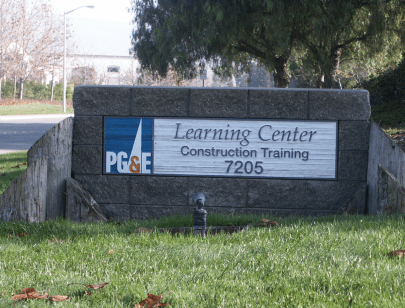
- Mark & Locate
- Corrosion Troubleshooting
- Cathodic Protection
- Leak Survey
- Leak Grading
- Safety Training
- Underground Electric Cable Failure Detection
- Testing and Training of Related Test Equipment
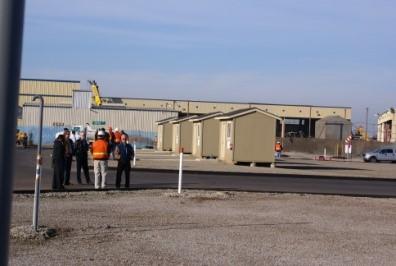
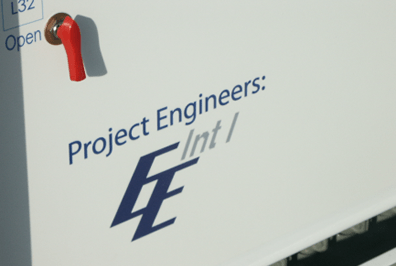
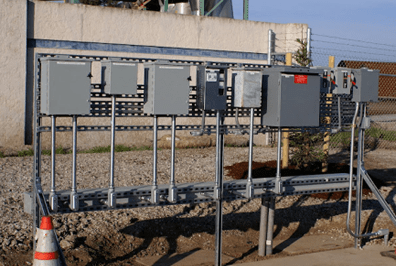
EEI’s Corrosion Team put together the original design working with PG&E to develop the various scenarios and the “circuitry” required to simulate the various failure modes.
About Pacific Gas & Electric Company
Pacific Gas and Electric Company, incorporated in California in 1905, is one of the largest combination natural gas and electric utilities in the United States. Based in San Francisco, the company is a subsidiary of PG&E Corporation. There are approximately 20,000 employees who carry out Pacific Gas and Electric Company’s primary business—the transmission and delivery of energy. The company provides natural gas and electric service to approximately 15 million people throughout a 70,000-square-mile service area in northern and central California.
Electric Generation Feasibility Study
Paso Robles, California – Heritage Ranch Community Service District
In 2001, Energy Experts International was requested by Heritage Ranch Community Service District (HRCSD) to provide a general assessment of the viability of constructing and operating a combustion turbine electric generating plant at a site near the eastern boundary of the Heritage Ranch community.
The study involved the consideration of all available alternatives for supplying the electric generation plant from the adjacent gas transmission pipelines, as well as evaluating an interconnection to the electric transmission line.
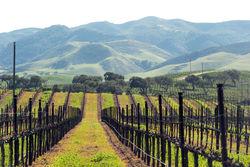
The study provided estimated costs for the construction and operation of a combustion (gas) turbine generating plant including utility costs for gas and electric facilities. Evaluations were made for a small plant (20MW) and a large plant (50 MW). Revenue requirements were estimated based on typical industry costs. A broad review of environmental permit requirements and related issues has been presented.
The Assessment Study addressed the following:
- Review of the General Plan
- Generating Plant Design
- Electric Transmission Interconnection Study and Design
- Gas Transmission Interconnection Study and Design
- Air Permits
- Water Permits
- California Environmental Quality Act Review
- Building and Electrical Permits
The report also provided the timing and schedule of the various alternatives being considered. EEI presented the findings to the Board and attended a public hearing to the constituents of the HRCSD.
About Heritage Ranch Community Service District
The Heritage Ranch Community Services District (HRCSD) is a public agency service provider to the village of Heritage Ranch for drinking water, sewage collection and treatment, solid waste removal including a diversion program for green waste and recyclables, parks and recreation and is the only Community Services District (CSD) in the state with a gas station. The district was formed in 1990 succeeding the County Service Area that had been in place since 1972.
Underground Storage Assessment Study
Brussels, Belgium – The Energy Charter
In 2008, EEI provided an assessment on the Investment and Market Development in the Underground Storage (UGS) of natural gas in Europe to the Energy Charter. The key issues of the Study dealt with the establishment of non-discriminatory, transparent and fair access to UGS for investors, suppliers, gas operators, consumers and traders. The need to attract foreign direct investment by establishing an adequate market structure would be critical to its success.
- The importance of building a proper hierarchy of third party access, access to infrastructure and the legislative /regulatory framework would be necessary for the market to function effectively.
- The Study objectives were as to address the following issues:
- The legal aspects of UGS, in particular, non-discriminatory access for investors, the terms of trade in UGS services and the issue of access for investors and improving market structure.
- The economic rationale behind the UGS, such as the impact of UGS on pipeline economics and delivered cost of gas.
- The pipeline integrity management impact of UGS, including issues in balancing, scheduling, delivery, etc.
- The market structure rationale of UGS, specifically its role in promoting greater transparency and liquidity in gas markets (gas hubs)

About Energy Charter
The roots of the Energy Charter date back to a political initiative launched in Europe in the early 1990s, at a time when the end of the Cold War offered an unprecedented opportunity to overcome previous economic divisions. Nowhere were the prospects for mutually beneficial cooperation clearer than in the energy sector, and there was a recognized need to ensure that a commonly accepted foundation was established for developing energy cooperation among the states of Eurasia. On the basis of these considerations, the Energy Charter process was born. The Energy Charter Treaty plays an important role as part of an international effort to build a legal foundation for energy security, based on the principles of open, competitive markets and sustainable development. The fundamental aim of the Energy Charter Treaty is to strengthen the rule of law on energy issues, by creating a level playing field of rules to be observed by all participating governments, thereby mitigating risks associated with energy-related investment and trade.
Pipeline Safety Benchmarking
Japan Gas Association
In 2004, EEI conducted a study on pipeline safety regulations in 7 countries; Canada, United States, France, Spain, Germany, Italy and the United Kingdom for the Japan Gas Association (JGA). This comprehensive study investigated all aspects of the safety and maintenance regulations and practices of each country. A sampling of key gas companies in each of the 7 countries were analyzed and site visits made to each entity to confirm and validate the findings.
The report addressed the following key areas:
- Pipe Design & Materials
- Welding, Plastic Fusion and other Joining Methods
- Construction Requirements for Transmission Lines and Distribution Mains
- Customer Meters, Regulators, and Service Lines
- Corrosion Control
- Test Requirements
- Qualification of Pipeline Personnel
- Standards and Bulletins
- Enforceability
- Safety Records and Statistics
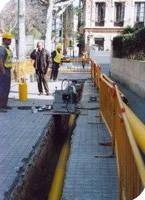
The contrast and the differences in the regulations were based on industry practice, infrastructure and the type of problems encountered in the past. While the enforcement of safety regulations was based on the country’s regulations, gas companies throughout the various countries all enforced local company practices that they deemed essential to the safe operability of their gas systems. Maintenance practices were researched to find out the genesis of certain specific practices, as well as to gain a better understanding of the success of certain practices and policies. Standard practices and policies were investigated to determine how they were being developed and how the standards were being complied to internally. Finally, the study addressed the enforcement aspects of the various safety practices and how they were managed internally. Audit practices and government oversight were also examined.
About the Japan Gas Association
The Japan Gas Association (JGA), an organization of city gas utilities, contributes to the economy and people’s welfare in Japan by promoting the sound development of the general gas utility business as well as the major gas related projects and gas pipeline projects and by coordinating the stable supply energy supply, ensuring safety and addressing environmental issues. JGA was established in October 1947, and became an incorporated association in June 1952 after qualifying as a charitable corporation. In 2011, JGA became a general incorporated association after receiving approval for a change in corporate status. JGA has a regular membership of 209 city gas utilities and an associate membership of about 270 companies and businesses involved in the city gas business. Regarding the city gas industry in Japan, there were 28.9 million customer contracts by the end of fiscal 2010, with annual gas sales amounting to 35.3 billion cubic meter.
